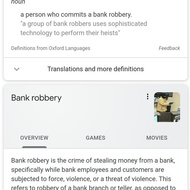Can an atheist be a proud Secular Christian?
By Admin • 5 years ago •
Thomas Jefferson had an interesting hobby. In his spare time, he would use a razor to cut out the things in the bible that were said to be spoken by Jesus and didn't contain religious hocus pocus. He called it "The Life and Morals of Jesus of Nazareth" or what's now called the "Jeffersonian Bible". As Jefferson was a strong advocate for the separation of the Church and State, he was interested in what could be consider common ground between believers and non-believers like himself. Jefferson saw value in the teaching and wrote, "A more beautiful or precious morsel of ethics I have never seen; it is a document in proof that I am a real Christian, that is to say, a disciple of the doctrines of Jesus."
For me, as someone who grew up in a devote Christian household, I spent a decade hearing stories and parables attributed to Jesus. When I later left the faith, I was often hostile to religion for the wrongs I perceived it did on me and on millions throughout history. However, as I've grown older and especially in recent years, I am more aware that I did benefit from the experience especially in how to treat those who disagree with me or could be consider enemies. The concepts of "love your enemies", "turn the other cheek", and "take care of others outside your tribe (good Samaritan)", while obviously not exclusive to Christianity, were taught to me in a Christian context. The phrase "Be like Jesus" or "What would Jesus do?" are shorthand reminders for me to try to be a better person... and something that to be proud of.What do you think?
Note: The views and opinions expressed in this article are those of the author and do not necessarily reflect the position of this website or its members.
Create your free account
 Fernapple
Level 9
Sep 3, 2020
Fernapple
Level 9
Sep 3, 2020
 redbai
Level 8
Sep 3, 2020
redbai
Level 8
Sep 3, 2020
 skado
Level 9
Sep 3, 2020
skado
Level 9
Sep 3, 2020
 Lorajay
Level 9
Sep 3, 2020
Lorajay
Level 9
Sep 3, 2020
 anglophone
Level 9
Sep 3, 2020
anglophone
Level 9
Sep 3, 2020
 RavenCT
Level 9
Sep 3, 2020
RavenCT
Level 9
Sep 3, 2020
 ChestRockfield
Level 8
Sep 5, 2020
ChestRockfield
Level 8
Sep 5, 2020
 Amzungu
Level 8
Sep 6, 2020
Amzungu
Level 8
Sep 6, 2020
 Marionville
Level 10
Sep 6, 2020
Marionville
Level 10
Sep 6, 2020
 Cutiebeauty
Level 9
Sep 10, 2020
Cutiebeauty
Level 9
Sep 10, 2020
 Mcflewster
Level 8
Sep 12, 2020
Mcflewster
Level 8
Sep 12, 2020
 DavidLaDeau
Level 8
Sep 17, 2020
DavidLaDeau
Level 8
Sep 17, 2020
 Bikes4Fish
Level 7
Sep 18, 2020
Bikes4Fish
Level 7
Sep 18, 2020
 HumanistJohn
Level 8
Sep 18, 2020
HumanistJohn
Level 8
Sep 18, 2020
 Desertcactus
Level 6
Sep 26, 2020
Desertcactus
Level 6
Sep 26, 2020
 mariposalover92
Level 4
Oct 15, 2020
mariposalover92
Level 4
Oct 15, 2020
 Lizard_of_Ahaz
Level 9
Oct 21, 2020
Lizard_of_Ahaz
Level 9
Oct 21, 2020
 Aristippus
Level 6
Oct 25, 2020
Write Comment
Aristippus
Level 6
Oct 25, 2020
Write Comment
Enjoy being online again!
Welcome to the community of good people who base their values on evidence and appreciate civil discourse - the social network you will enjoy.Create your free account
31 comments
Feel free to reply to any comment by clicking the "Reply" button.Since there are so many different forms of Christianity, it is a virtually meaningless term and can therefore be anything you want it to be. So that if someone, like everyone else, wanted to cherry pick out the bits they like and then call that Christianity, then they are no different from anyone else, and are perfectly entitled to call themselves a Christian if they wish. Personally if they believed in "love your enemies", "turn the other cheek", and "take care of others outside your tribe (good Samaritan) " I would probably call them simply a, good person instead, because I think that they are better than that religion. Or even better than Jesus who if we take the New Testament as half true, also said some really horrible things.
I think if you had non-Christian parents they would have found other stories and phrases to instill the same values that you have now, you know, like the billions of families that aren't Christian that find a way to do it anyway. The idea that the Bible is a way of teaching morals and ethics or how to treat other people can only be assumed by a cursory reading of the book. Which explains why most Christians use it as such.
And maybe more importantly, the parents used their own moral compass to decide what in the Bible was something they should teach while likely leaving out all that inconvenient shit about killing your children or selling them into sexual slavery.
Yes, and I even think an atheist can be a proud Christian without even qualifying the status as secular. What, after all, does sacred mean, if not that to which we attribute the highest value? And what does secular mean if not mundane? What other pair of adjectives are better suited to distinguish our loftiest ideals from our ordinary practical concerns?
There is nothing sacred about believing things that aren't true. The Bible tells me so: "And ye shall know the truth, and the truth shall make you free." Religious literalism isn't even Biblical - Jesus himself spoke in parables. The idea that God is anything other than a personification of Nature is probably a nineteenth century invention, and not the highest original understanding of Christianity.
People who have had bad experiences with Christian fundamentalists will understandably want to blame Christianity at large, but I don't see that history or science necessarily back them up on that claim.
What's history got to go with it though? A thing is what it is, not what it used to be.
@JeffMurray
A thing is what it is, not what it is popularly perceived to be. And an awareness of its origins can help us see more clearly what its real essence still is.
It’s true that if a thing changes over time into a completely different thing, then it is no longer the original thing. But if popular opinion of a biological necessity morphs into a belief that it is only a bad idea, it doesn’t make the biological necessity go away. An awareness of the historical trajectory of public opinion, as well as the scientific underpinnings of religion, work hand in hand to illuminate the significant role it plays in counterbalancing the evolutionary mismatch caused by the invention of agriculture.
What is popularly understood as religion today is in some ways nearly the diametric opposite of what it needs to be in order to continue fulfilling its biological purpose as counterbalance. The original (historical) purpose of religion isn’t obsolete. What’s obsolete is yesterday’s understanding of religion as applied to today’s need.
@skado I'm sorry, I read this several times and I can't figure out what you're saying here.
A thing is what it is, not what it is popularly perceived to be. And an awareness of its origins can help us see more clearly what its real essence still is.
I'll give you the first part. That's not much different than what I said, i.e. something is what it is and not something else.
But I disagree that knowing something's origins changes its 'real essence'. The thing still is what it is, as we seem to already agree.
But if popular opinion of a biological necessity morphs into a belief that it is only a bad idea, it doesn’t make the biological necessity go away.
True. If everyone thought it was bad to drink water it doesn't make water any less necessary for life. However, if the implication is that religion is a biological necessity, now (remember, if it morphed, it may no longer be necessary), I'm going to need to see some evidence of that.
An awareness of the historical trajectory of public opinion
Again, I don't see how what people thought of religion throughout time has any relevance on what religion is now.
scientific underpinnings of religion
I'll need you to explain what this means and the relevance of it to the discussion.
work hand in hand to illuminate the significant role it plays in counterbalancing the evolutionary mismatch caused by the invention of agriculture.
It being religion, I assume. So opinion + scientific underpinnings illuminate the role religion plays in balancing out a mismatch between what? Man and all other organisms? If I managed to get that right, how is that important, or at all a mitigating factor in how terrible religion has been and still is for mankind (and the planet at large it could be argued).
What is popularly understood as religion today is in some ways nearly the diametric opposite of what it needs to be in order to continue fulfilling its biological purpose as counterbalance.
I'm obviously way off base understanding your point. I'll need you to clarify.
The original (historical) purpose of religion isn’t obsolete.
How so?
@JeffMurray
All good questions. Other responsibilities are demanding my time right now, but I’ll try to do those questions justice later today or at my first opportunity within the next day or two. They require a good bit of background to get up to speed. Thanks.
@skado Thanks. Yeah, take your time. I just really wasn't following where you were going.
The basis for every Christian sect I have ever heard of is that every Christian believes that Christ is the son of God. How can you be an atheist and believe that?
@JeffMurray
I didn't say "knowing something's origins changes its 'real essence'." I'm saying popular perception may not reflect its real essence, and knowing its history may help us understand that real essence better than only knowing how it manifests today.
And I didn't speak about religion itself morphing (that's another subject) but about public opinion morphing. I called it a biological necessity for short-hand. A more precise description would be a cultural necessity, but even culture has a biological base.
So, culturally necessary for what purpose? To counterbalance "Evolutionary Mismatch" which, in brief, is the situation in which the environment changes faster than evolution can adjust.
[en.wikipedia.org]
In this case we did it ourselves, by inventing agriculture. Agriculture precipitated many radical changes in our environment and behavior that were at odds with our evolved nature. This kind of mismatch is one of the most common causes of extinction.
It appears to me (I'm no scientist, but I read a lot about this particular issue) that our evolved nature was not a seamless fit for city life, and behavioral modifications were necessary to balance that mismatch. It's not that no religion existed before the agricultural revolution - the balancing act had its beginnings long before that. But religion essentially became a very different phenomenon after civilization began.
If this observation is correct - if religious discipline does serve to dampen some of our animal instincts for the purpose of living among large numbers of strangers - then carelessly casting it aside wholesale without considering its historical bio/cultural implications, could be toying with the collapse of civilization, and even extinction.
And though the science appears far from settled on this specific matter, I'm not the first person to say similar things. Dan Dennett, of all people, has urged people to understand what they're destroying before they do it. He thinks, as I do, that religion has taken a cancerous turn. But he also understands that it has biological origins, and so shouldn't be disregarded as useless, before we fully understand its significance.
I don't have slam-dunk proof to offer, but the more I study it, the more religion looks like an essential ingredient in our capacity to sustain civilization. Whether civilization itself is the best path is another question. But whether it is or isn't may not be up to us. I think that genie is already out of the bottle.
Thanks for listening. I'd love to hear your thoughts.
@Lorajay I'm with you on this. There are a lot of loosy goosy definitions of things going around here and across the internet. Nothing I can really do about it, but I like my words to mean something and convey information. If 'Christian' can be used to define one who believes in some of the teachings of Christianity, even without the belief in the divinity of Jesus Christ, it seems like you can stretch that to include pretty much anything. Then, the only way you'd know if someone is a Christian is if they self-identify, and when people self-identify, you have no idea what that even means because there's no standard definition.
@skado Honestly, I don't see evolutionary mismatch, especially as it pertains to religion, to be of actual concern for humans. Mankind has been actively denying natural selection for decades and have been actively working on our own destruction in other ways for even longer. Seems silly to think a process that we are "over" is more dangerous to us than all of the other problems we've created for ourselves. Add to that the fact that humans have no control over what they believe (regardless of whether people believe they do or not) and you have a problem not worth worrying about because it's not under our control. I'm sure a lot of people will disagree with that assessment, but that's my two cents.
Secular is defined as values which are without any religious basis. Calling someone a secular Christian is like calling someone an ethical bank robber.
The universal value of doing unto others as you would have them do unto you is present in almost every known religion. I still remember and Episcopal friend of mine that we helped clean up her yard after a bad ice storm telling everyone that Kenneth and I were the best christians she had ever known and she knew I was an atheist. She meant it as a compliment but you cannot be a secular Christian. You can be and ethical atheist though.
@TheMiddleWay
I think you're playing word games here and I think you know it. You're not a bank robber if you work for the bank testing security and don't steal anything (or intend to steal anything).
@Admin
Let's pretend her analogy was 'ethical serial rapist'. She probably didn't feel the need to go that dark, but it seems to solidify her point. I personally don't think there are any number of 'good deeds' one can do to mitigate that.
@Lorajay
Almost all children are just like almost all other types of people: basically bad. Have you seen how they behave to each other? And that's when they have to power, no needs they have to meet on their own, and generally no stressors. It is because of that, that I can completely agree that children who behave 95% of the time would be a reason to believe in miracles.
@TheMiddleWay
Wikipedia disagrees with you.
@TheMiddleWay Ethical hacking may be a thing, no one said it wasn't. But I think her point was that robbing banks is not ethical. And "ethical bank robbing" isn't robbing a bank any more than killing someone in virtual reality is murder. You're adding a word to it which necessarily changes what the thing is. If I add 'vegan' in front of 'cheeseburgers' we're no longer talking about the same thing we were before.
@TheMiddleWay So then he's not a bank robber he's an ethical-bank-robber. We are having major communication issues this evening. Look at what you said in your reply.
Yes, I am adding a word that necessarily changes the whole thing
and
Hence adding ethical in front of bank-robbing modifies bank robbing
Does it modify it, or does it necessarily change the whole thing? 'Cold' modifies soda, 'empty' completely changes it.
@TheMiddleWay
Nope. There must have been an update today because the reply button swirls now. @Admin aware of the quote box glitch?
Also, I missed the magazine thing. How does that all work? Do you have to submit something to be an article?
And is there a list that shows how to make all the text styles like bold and strike through?
How about it @FearlessFly @Fernapple? Can you figure this out for us?
@JeffMurray . . . until it was mentioned, I had been oblivious to the existence of the quote button
I haven't noticed anything odd about 'Reply'.
I have 'reported' "Report" not apparently working, and that I'm not getting expected alerts.
@FearlessFly Thank you for that info.
Any thoughts on calling someone a bank robber when their job is ethical-bank-robber?
@TheMiddleWay Those are not real bank robbers or real hackers.
@JeffMurray I would call them a 'pen tester'
@TheMiddleWay, @JeffMurray I Disagree that most children are bad or that most people are.
I think nvironment and socialization often creates so called bad actions in children. I had 2 children and I watched them navigate through their environment and the people they were exposed to. Yes I probably had an excuse for each of their bad actions but I still think that people are intrinsically good when given the opportunity.
@TheMiddleWay But the intent and actions aren't the same. The intent of a bank robber is to steal money, the intent of the ethical version is to test security to defend against theft. The actions of a bank robber are to remove money, most often at the threat of harm or death, and keep that money as a source of income. The actions of the ethical version probably involve some similar characteristics, but without the permanent removal of funds for personal gain.
@Lorajay
A lot of people disagree with me on that, so I'm not surprised. I believe all people (including children) are intrinsically bad. People are selfish and greedy, and need only the right motivation and opportunity to reveal it. The more advantageous the bad act is and/or the less risk involved, the more likely any given person will take advantage. The "less badness" of a person is judged (by me) by how great the advantages and low the risk has to be before it motivates a bad act.
@TheMiddleWay NO YOU DIDN'T!! I'm not disagreeing just to disagree. You just said:
.
.
.
.
the actions are the same, but the intent is different.
A Christian is atheist about the other 4,999 or so gods that are floating around.
I learned a lot more about being moral from seeing what the adults around me did for others - regardless of religious affiliations - than what I ever saw/heard in a church.
Frankly I think we can find far better ways of 'being' in present times without believing in the make believe (we have no proof Jesus actually existed and wasn't actually an amalgam of prior gods).
TST has some lovely tenets without being religious in the least (they're an atheist organization):
(BTW - These tenets require zero magical thinking - and not a lot of memorization to figure out what might lead to a better life for everyone).
There are The Seven
FUNDAMENTAL TENETS
I One should strive to act with compassion and empathy toward all creatures in accordance with reason
II The struggle for justice is an ongoing and necessary pursuit that should prevail over laws and institutions.
III One’s body is inviolable, subject to one’s own will alone.
IV The freedoms of others should be respected, including the freedom to offend. To willfully and unjustly encroach upon the freedoms of another is to forgo one's own.
V Beliefs should conform to one's best scientific understanding of the world. One should take care never to distort scientific facts to fit one's beliefs.
VI People are fallible. If one makes a mistake, one should do one's best to rectify it and resolve any harm that might have been caused.
VII Every tenet is a guiding principle designed to inspire nobility in action and thought. The spirit of compassion, wisdom, and justice should always prevail over the written or spoken word.
I heard that Hitler was a stickler for dining etiquette and table manners, so since many learned those habits in that context, I suppose we should call them polite or dignified Nazis.
You can use shorthand like this, but you're going to waste more time on all the invited questions than it's worth.
@Admin I know you're just kidding, but to be fair, the article kinda stated the opposite of that.
The concepts of "love your enemies", "turn the other cheek", and "take care of others outside your tribe (good Samaritan)", while obviously not exclusive to Christianity, were taught to me in a Christian context.
So even if table manners were common place, the Hitler youth that learned them in that context...
I was mostly joking, but kinda making a little bit of a point.
@Admin Oh, and is the quote box bug fix in the works?
I say absolutely one can be atheist, secular and still follow the basic principals found in the teachings of Jesus, thus considering themselves a Christian. More fundamental Chrstians would certainly disagree due to their belief in a Supernatural God and the designation of Jesus having been his son, but for those who do not believe in a deity, it fits together quite logically. I have read the Jefferson Bible and found it to be a relevant piece of work in encouraging that there is no need for a God in order to be a 'good human'. Whether or not Jesus actually existed, the teachings abscribed to him are rather unarguably a good set of precepts to follow if one seeks to be a kind, compassionate, forgiving human that has a positive and mindful impact on his fellow earth dwellars. One can simply view him among many wise teachers that came before our time and provided a guide to what is now more along the lines of a humanistic view on life, once all the dogma inherent in a belief in a God is removed. Simply because we have morphed those teachings into the supernatural and diety driven force of moralism that we now see in most religions, doesn't necessarily make the wisdom itself irrelevant.
I have voted no...because the morality and the examples shown by Jesus Christ did not originate with him, he in fact adopted an empathy and morality towards others that was already inherent in humans. It is an admirable philosophy of philanthropy and compassion, and an ethos of caring for others than I wish more people, whether Christian or not, would adopt, but it did not originate with him. Unfortunately, it is impossible to single out the teachings of Christ and leave the rest of the baggage being a Christian comes with, and for that reason I cannot agree with the premise that it’s possible to be both an atheist and a secular Christian.
I voted yes.. The way Jefferson did this with the bible is very interesting...
You are ignoring the vast quantity of Humans who do good work, have as much if not more empathy as the construct called Jesus and do not conduct miracles but real steps towards fully understanding the Human condition and potential. Why concentrate on a single person for your inspiration? Why?- it is because you were taught and told to believe in him .Whereas I take it that you got here by yourself with reason and logic. If you do. chose the wrong leader , they tend to make massive mistakes because of their adulation . Jesus' death was a good career move towards martyrdom and others joined in to produce eventually our terrorists.
An atheist can not be a proud secular Christian as these are mutually exclusive. One can try to be a good person (be a good Christian in the colloquial sense) but that is a cultural nuance. Just because a particular belief system claims to have moral standards does not make the standards moral nor does it make a particular belief system the origin of morality.
I understand the cultural equivocation but that cultural equivocation is not objective.
Just another note. President Jefferson did believe in the separation of state and government as he put it.
His idea was almost the opposite of what it is understood to be today. He believed that government should not interfere with religion. He never said that religion should be banned IN the government. I am however very glad that we have it wrong!
In this video I go into further detail about the subject.
Love the shirt. Should 45 prevail then I would, again and more forcefully, advance the idea that the remaining 3 years of AntiChrist rule has begun. Those Jews who follow Christianity will allow non-Jesus Jews to be shot in order to bring the prophecy into reality. Only the converts will be left.
The person in question would have to remain ignorant of the preceding 2,500 years or so of recorded history. He or she could just as easily be a proud Confucianist or Taoist or Hammurabist or Hindi or Zoroastrian as all or most of the doctrines attributed to Jesus were already codified in older texts and/or passed down through oral traditions. I suspect that most proud Christians are ignorant of the history of the ideas they believe originated with Jesus. In the end, being a proud any kind of Christian looks like little more than brand loyalty - like being a proud Tide laundry detergent user vs. a proud Cheer laundry detergent user
No, there is no such thing as a secular xian.
Firstly, you don't need the (supposed) words of jesus to be a moral person.
Secondly, when you do that (taking passages that you like) you're simply doing the same thing as the scamgelicals- picking-and-choosing what sayings suit youy.
Thirdly, according to paul, you have to believe in the resurrection to be a xian.
Fourthly, to be a xian, you have to accept the old testament. Do you really want to do that?
Morals have nothing to do with Christianity. There are many different reasons, some choose religions, others karma or energies, and there are still other ideas that demonstrate or explain our need for morality. Pick whichever you choose as long as you pick something to motivate your morals!
What about a proud secular Muslam, Jew, Hindu, Shinto, Buddhist, etc. If you grew up with religion whether it be Christianity, Islam, Judism, Buddhism, Hinduism, Shintoism, Taoism, Unitarian Universalism, or whatever, it's part of who you are. Yes you grew up, moved out and decided not to practice religion anymore but you still did it as a kid (not that you wanted to of course 
It doesn't work that way.... Jefferson was a believer he just didn't think of Jesus as the son of a god his beliefs were more in line with Muslims who speak of that imaginary being as a Prophet instead.
Please use another photo other then this demented creep. It's surreal and offensive.











